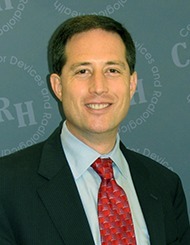por
Olga Deshchenko, DOTmed News Reporter | February 18, 2011

FDA's Shuren took
some heat at the
hearing
Medical device industry representatives said Thursday the U.S. Food and Drug Administration's device approval process is burdensome and difficult to navigate, hindering the ability of startups to thrive and driving away medical innovation from the United States.
Six witnesses testified before the U.S. House Energy & Commerce Committee's Subcommittee on Health during the "Impact of Medical Device Regulation on Jobs and Patients" hearing held in Washington.
One of the panelists was Dr. Jeffrey Shuren, director of FDA's Center for Device and Radiological Health, who was grilled by committee members on the differences between the medical device approval process in the U.S. and Europe and the length of time it takes the FDA to run a device through the approval process.




Ad Statistics
Times Displayed: 11908
Times Visited: 123 Stay up to date with the latest training to fix, troubleshoot, and maintain your critical care devices. GE HealthCare offers multiple training formats to empower teams and expand knowledge, saving you time and money
Shuren defended the strength of the FDA's approval pathways. "Some would say that, despite the record of growth and prosperity in the U.S. device industry, the European regulatory system is better for industry and patients," he said. "It is difficult to make direct comparisons between the U.S. and European systems given their fundamental differences, including, at the most basic level, differing approval standards -- the EU lacks the requirement in U.S. law that a device be shown to be effective."
In their testimonies, the panelists addressed different concerns about the FDA's device approval process, including its impact on medical innovation, America's competitive edge and patient safety.
Trouble for medical device startups
In his submitted testimony, Dr. Josh Makower, a consulting professor of medicine with Stanford University and CEO of ExploraMed Development, said that over the years, the FDA's approval process has become "more time consuming, more costly and less predictable to navigate."
In response to industry concerns, Makower and a colleague conducted a survey of 200 medical technology companies to generate data on their experiences with the FDA.
He noted that although the U.S. has a number of medical device giants, more than 80 percent of med-tech companies have fewer than 50 employees. "These small startups are the engine that fuels the developments of innovative new devices, which are often acquired by the larger companies," Makower said.
Makower's study found that it took companies up to two years longer to navigate the FDA approval process than the European regulations for low- and moderate-risk devices. "For higher-risk devices, the discrepancy was greater -- in the U.S. it took three and a half years, or five times as long as Europe, to grant approval," he said.

